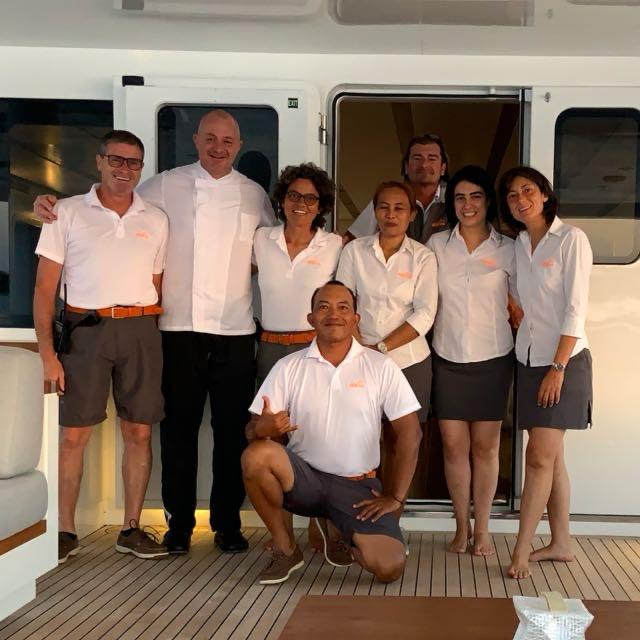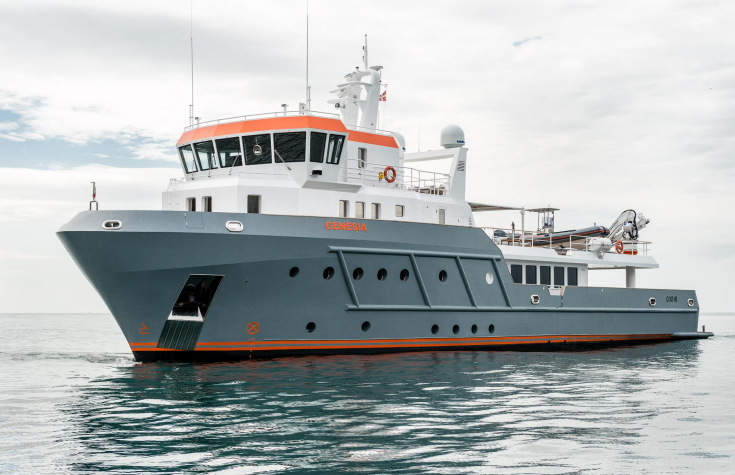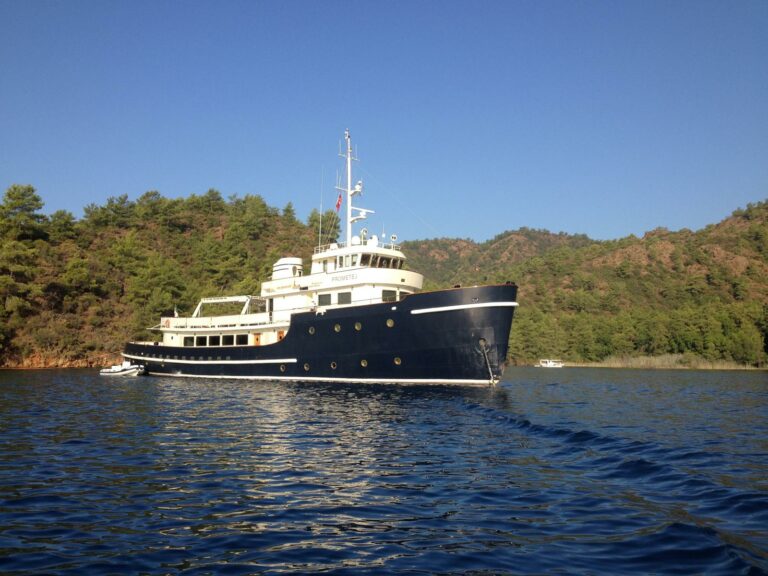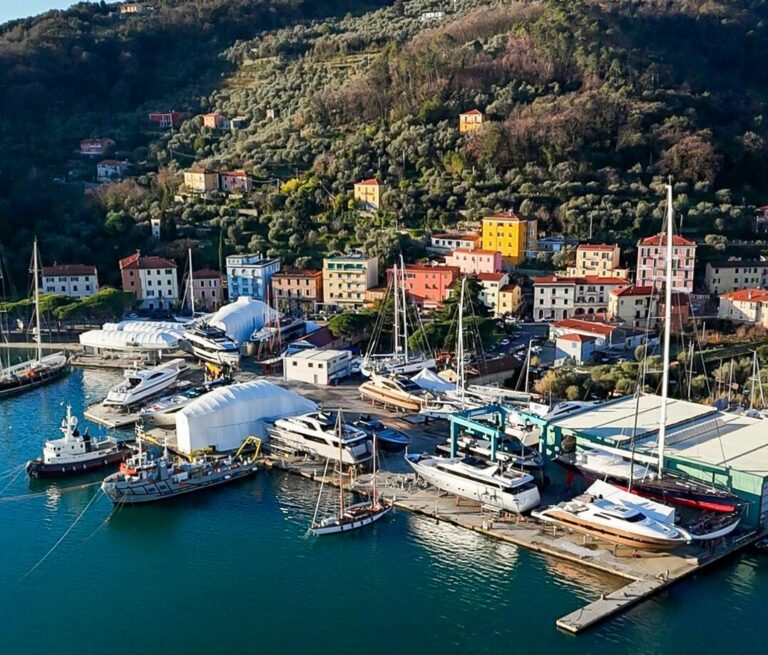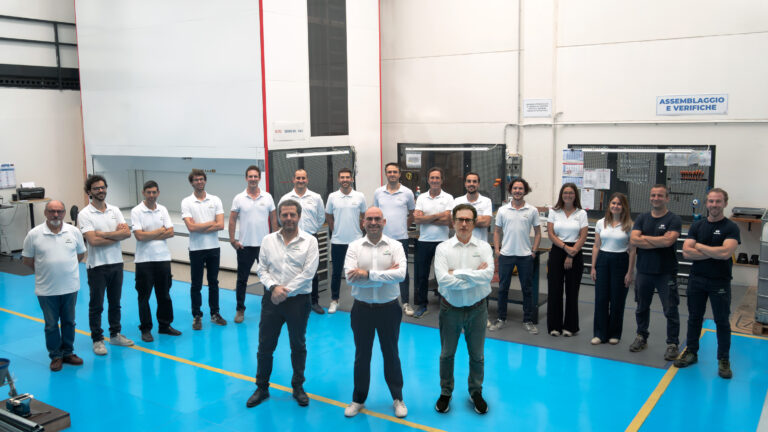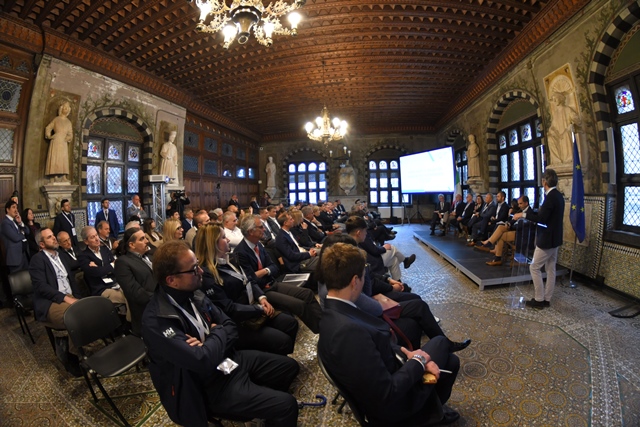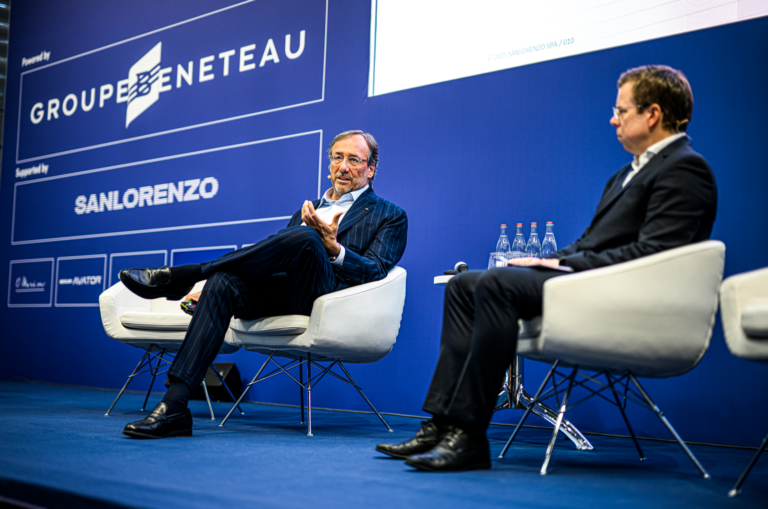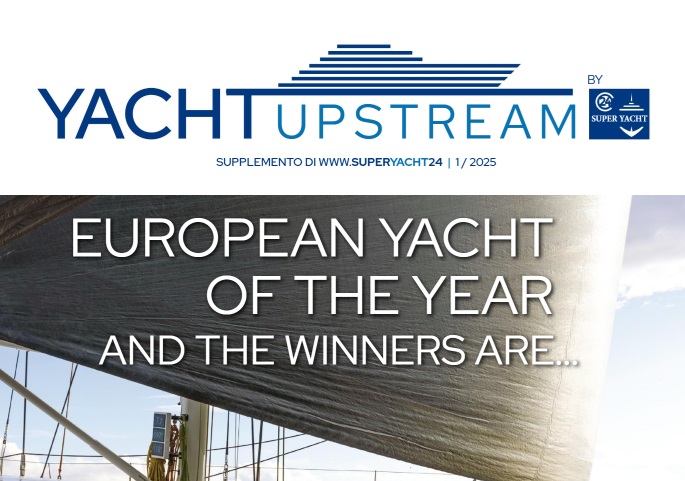“Courage and Insecurities”: the story of Captain Maria Rametto promoted by Alberta Ferretti
The woman who now helms the 40-meter explorer yacht Genesia reveals the secrets of her job and sends a message to young people and women
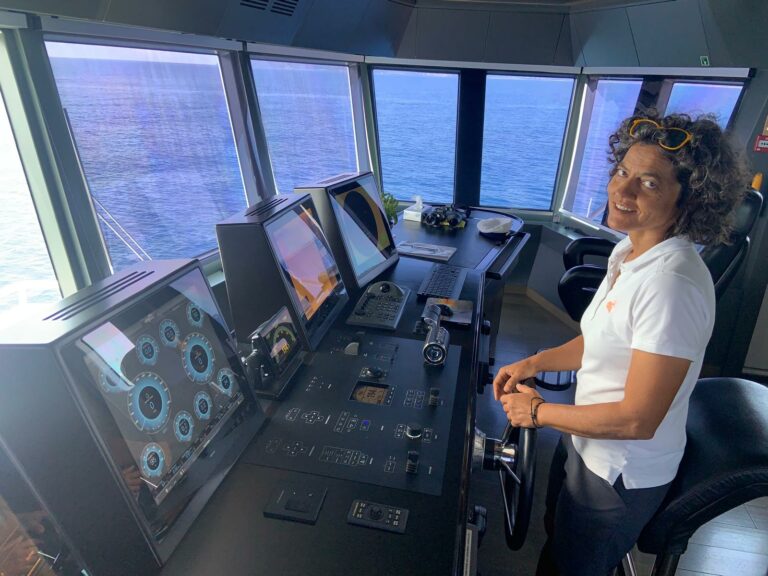
Maria Rametto is the captain of the 40-meter explorer yacht Genesia, and the first woman to hold this role, as she tells SUPER YACHT 24 in an exclusive interview. Captain Rametto has long declined media interview requests, but today she has chosen to speak with our publication to send a message to the “female sphere” about the opportunities this career offers.
Captain Rametto, let’s start with your personal experience. Why did you choose this career?
“My first approach to the boating world was through sailing at the age of five. From that moment on, sailing became a way for me to stay physically active, a sport, and a source of fun. As a child, the sea scared me, but as I grew older, I gained confidence, and my love for sailing blossomed. I thus began participating in regattas and worked my way through the traditional ranks of sailors. Over time, I developed a strong desire to sail—an insatiable ‘hunger’ for maritime knowledge that replaced my love for competition. After high school, I decided to enrol in a nautical institute. I started boarding anywhere I could, aiming to gain experience and eventually take command, which I achieved at 33. I believe I was one of the youngest women to command a yacht in the industry”.
How did you land your first position onboard?
“I posted ads everywhere and was quickly contacted for a position as a deckhand rather than a hostess, which made me incredibly happy. That’s how I began my journey in the ship’s ‘deck’ department. The captain grew fond of me while I studied to obtain my Italian licenses, benefiting from my previous coastal navigation experience”.
Why did you choose to obtain Italian licenses?
“I wanted to get the Italian licenses, known for their challenging exams because I wanted a solid foundation of competence. And my true ‘hunger’ was for experience, not study. After less than two years, I was promoted to first officer. When the captain left, I already had the qualifications for command, but no real experience. The yacht owner, fashion designer Alberta Ferretti, trusted me, and that’s how my career as captain began on a 45-meter yacht, a former Russian icebreaker from 1956. It was an incredibly positive experience, filled with emotions that nearly kept me up at night for a year”.
What was the most challenging aspect of your first job as a captain?
“Certainly the management of the crew and the vessel. Even though I started with a 45-meter yacht, I felt prepared for manoeuvring, having assisted many times as first officer and taken notes on all the techniques to be applied in specific situations. We always sailed in the Mediterranean, although the yacht owner had considered exploring the Northern seas. Unfortunately, her busy work schedule wasn’t compatible with the complex preparation such a journey would have required”.
So your first experience as a captain was with a female owner. What did this experience give you?
“I commanded that vessel for four to five years, and Alberta Ferretti was vital to me because she granted me immense trust; her children did the same. However, those years were marked by a great deal of tension, as the responsibilities of command are immense, and the fear of making mistakes in my first position was strong”.
Did the fear increase due to being a woman?
“As a young woman with little experience, every small problem felt enormous for me, I was terrified at the thought of making a mistake and taking risks. After that position, I needed a recovery period, and I returned to sailing and feeling the salt on my face for a while, even thinking I might never embark as a captain again. I felt that any mistake I made would be labelled ‘the failure of a woman’ rather than a normal learning error. This mindset stayed with me for quite some time. Eventually, I began to see mistakes as learning opportunities, feeling fortunate compared to those who never make mistakes. Today, I believe that we create these situations for ourselves, which leads us to experience them poorly, under too much pressure”.
How do you experience commanding your vessel today?
“Today, being in command is a completely different experience for me—much more serene and less burdensome. However, there are still aspects of this job that can be heavy and unavoidable, such as constantly living with people who, although wonderful, we did not choose. The truth is that it can be challenging to live the lives of others, and you can feel a human need to give more space to one’s existence”.
Is there a way to tackle this issue and regain energy?
“Yes, in the past two years, I’ve organized my work so that a colleague takes command in the winter while I return for the summer, the peak season. The owner I work with is an extraordinary and enlightened person; after years of command, I could consider leaving this lifestyle, but their strong desire for me to stay holds me back. In November, we will embark on a long journey that will take us to the Caribbean, Venezuela, and Colombia. It’s a wonderful project that we started in 2019 but couldn’t complete due to COVID. This time we hope to complete it and after I think I will take a long break.
How did your relationship with your current owner begin?
“My owner, an Italian-French man living in Italy, is a sailor, and we met through mutual friends. He wanted this boat for his wonderful family; he experiences the sea with passion and a sailor’s approach, truly ‘breathing’ the ocean. Onboard, we have two sailboats, and we compete from time to time. His involvement is authentic; on the Genesia, there’s a rare harmony that’s hard to find on other yachts. His positive energy inspires me to tackle the challenges that, in yachting, often relate to human dynamics”.
Let’s talk about these dynamics: how do you manage the challenges that arise with the crew, which can often seem insurmountable?
“This is a topic I care deeply about. At a certain point in my career, I shifted my focus from navigating to the crew, as if there had been a real transformation in me. The crew is my top priority, above any other aspect, like radar or engines. It’s essential to nurture group dynamics, and one must study this, as the English do, who are ahead in this area. Being aware of these mechanisms helps in better managing situations and developing tools to address the differences and lifestyles of each person. Here, we are eight people in 25 square meters, and any inappropriate action by one person can influence the others. In recent years, managing the crew has become a central focus of my command”.
When selecting a new crew member, what aspects should be considered?
“I’ve learned that it is essential to respect the personalities of new crew members. It’s important to accept those who want to stay for just a few months, as personal motivation is crucial for achieving good results. Today, I look for people ready to join for a season, offering contracts of 5-6 months, which allows them to recharge and improve their lives. This approach has resulted in a good turnover of motivated individuals who often return to sail with us.
With our upcoming departure for the Caribbean, we will have a new chief engineer, an experienced Jamaican, and a new hostess. We will be a group of eight people, with a majority of women: five women and three men, including two women in key roles”.
Why do you feel the need to speak to women and girls?
“I’ve noticed that women tend to take fewer risks and are less likely to put themselves forward for leadership roles, even though they often have superior skills. It seems they need a little extra push. Moreover, some studies indicate a decline in the number of women in this career. I believe that we female captains should make our voices heard and share our experiences.
I believe that leadership belongs to us, as women have a strong ability to see the big picture, which is crucial in this work. The girls who work with me can process information and organize tasks effectively. On the other hand, guys excel in other areas, but having a holistic view remains a key skill in management and command”.
How can major crew problems such as overwork stress in confined spaces be addressed?
“It is essential to have the courage to claim one’s rights. I’ve experienced difficult situations, especially in the early steps of my career, and I remember how exhausting it was to reach the end of a shift. It hasn’t always been smooth sailing; I’ve faced extreme stress during charters, where I felt completely drained. Often, there is a lack of courage to say, ‘I can’t take it anymore.’ If we mariners were bolder, we could improve our situation”.
What aspects do you focus on to ensure safety during navigation?
“I primarily focus on the professionalism of the crew and the condition of the vessel. Everyone must know exactly what to do to ensure safety on board, as there is no training for handling unforeseen emergencies. We have standard procedures to follow: for example, in the event of a fire, it is crucial to remain calm and follow the protocol; this is the only way to save ourselves”.
We know it will take time to uncover what really happened with the Bayesian. Do you have an opinion about it?
“The incident has deeply affected me, as it has all of us in the maritime community. I have chosen not to be influenced by everything that has been said. I believe that the tragedy was the result of a series of events, even small ones, and I am convinced that the crew did everything possible. We mariners are on board to work, not to put our lives at risk. In one or two years, we will know what really happened”.
SIGN UP FOR SUPER YACHT 24’S FREE NEWSLETTER
